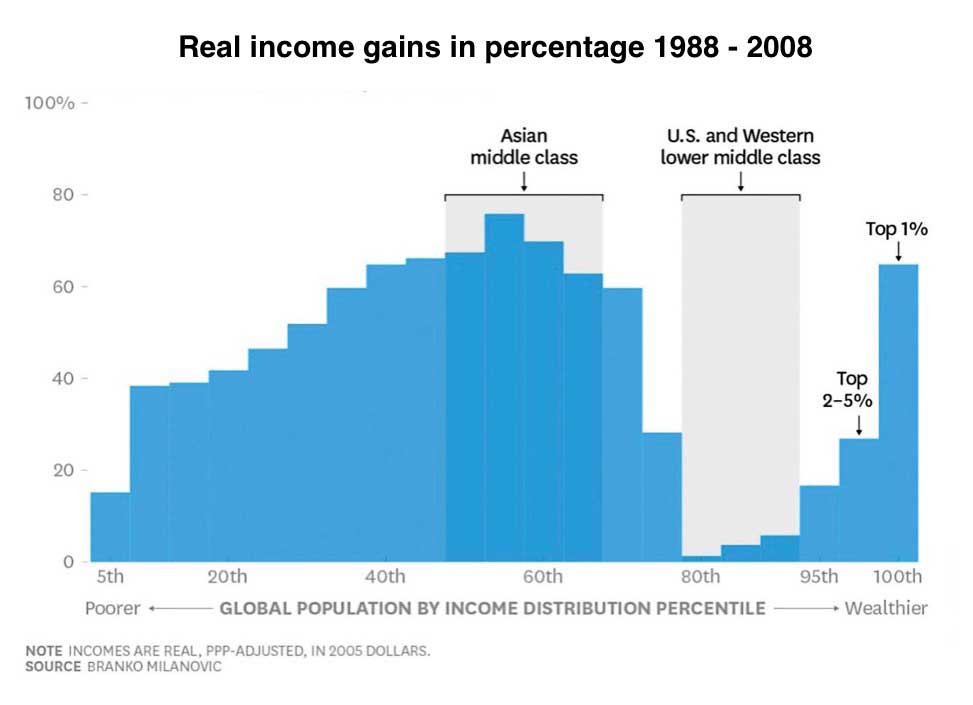After the turmoil of the 1970s, when the combination of the collapse of the international system for managing exchange rates and the oil price shock of 1974 combined to produce rising unemployment and high inflation, the global economy seemed to enter a far more tranquil period. This period of relative tranquillity and reasonably steady growth became known as ‘The Great Moderation’. Economists and politicians came to believe that they had solved the old cycle of boom and bust, mostly through what became known as the neo-liberal package: liberalisation of trade and finance, deregulation, and increased labour ‘flexibility’ through the weakening of trade unions.
The Great Moderation came to an abrupt end in 2008 when the largest financial crisis since the Great Depression erupted. But nevertheless the last quarter of the 20th century and first decade and half of the 21st delivered some truly stunning increases in the material well being of the human race. In particular it has allowed billions of people to escape acute poverty, and live longer, healthier and richer lives.
However the benefits of the Great Moderation were not evenly distributed. The populations of the emerging economies, particularly in Asia, benefited hugely, and the richest elites of the West saw their wealth grow significantly, but the increase in incomes for most working people in the west was far less spectacular. Then came 2008 and again it was the working people of the west that carried most of the costs of the crisis in the form of the longest period of income stagnation in modern economic history.
As the graph below clearly shows the big winners from the growth, globalisation and trade expansion of the last 30 years has been the people of Asia and the wealthiest 5% of the population in the western liberal democracies. Most of the people in the liberal democracies have seen their incomes largely stagnate.
At the same time western social democracy finds itself largely immobilised. In the eurozone the institutional design of the single currency system actually works to systematically and drastically reduce the space for social democratic action, and bereft of purpose the traditional parties of the centre left have fragmented and declined. In the UK the New Labour project, which actually delivered the most sustained period of progressive social democratic government policy since WWII, was built on the premise of continuing growth and was completely disorientated by the sudden arrival of economic stagnation. New Labour was also an intentionally top down project and never really worked to transform cultural and political discourse, or galvanise enthusiastic and active political support for social democratic values, so when its material base was destroyed in 2008 it suddenly evaporated politically.
Given the circumstances the rise of populist parties of the left and the right (mostly the right) in the western liberal democracies is hardly surprising.

